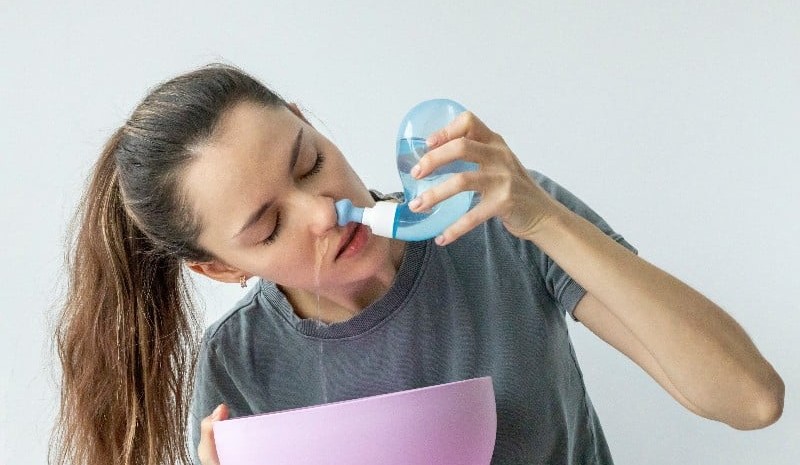All 10 patients studied were immunocompromised, seven had chronic sinusitis, and at least four reported using tap water for rinsing
By Elana Gotkine HealthDay Reporter
MONDAY, March 18, 2024 (HealthDay News) — In a report published in the April issue of Emerging Infectious Diseases, the details of 10 cases of nonkeratitis Acanthamoeba infection are described from 1994 to 2022, all of which occurred among immunocompromised patients.
Julia C. Haston, from the U.S. Centers for Disease Control and Prevention in Atlanta, and colleagues identified patients with laboratory-confirmed nonkeratitis Acanthamoeba infections who reported nasal rinsing before symptom onset using data from the U.S. CDC free-living amebae database.
The researchers found that 10 patients reported nasal rinsing before diagnoses with nonkeratitis Acanthamoeba infection during 1994 to 2022; nine of the cases occurred in the past decade. All 10 patients had at least one immunocompromising condition, most often cancer; four of the five patients with cancer had chronic lymphocytic leukemia. Two patients met the criteria for AIDS at the time of diagnosis. Seven patients survived. Seven of the patients had a history of chronic sinusitis, which may have delayed identification of acute sinus symptoms. At least four of the patients reported use of tap water for rinsing; one reported using sterile water but then submerged the device in tap water. The other patients did not report a water source.
“All health care providers caring for immunocompromised persons should educate their patients about Acanthamoeba infections, including how to recognize symptoms and how to practice safe nasal rinsing,” the authors write. “CDC recommendations for performing safe nasal rinsing include using boiled, sterile, or distilled water.”
Copyright © 2024 HealthDay. All rights reserved.








